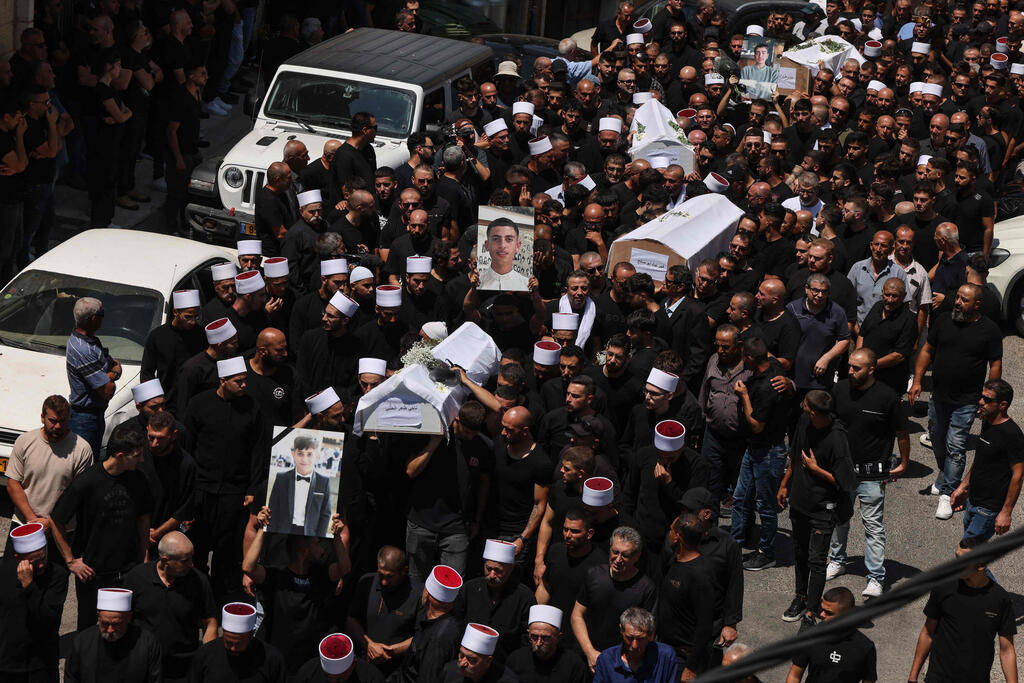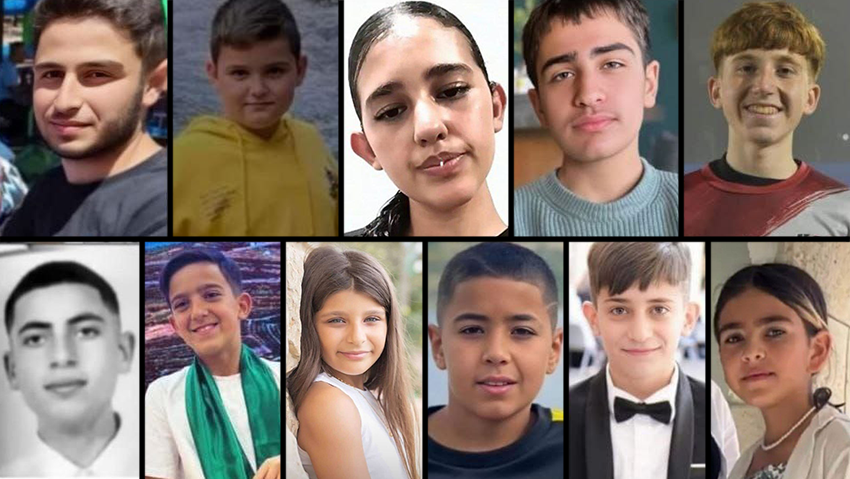We were dealt a harsh blow. 11 children were murdered. It’s unclear if this marks a strategic turning point, but it’s certainly a wake-up call. We were caught off guard, blind to the reality we live in. We didn’t need a devastating attack in Majdal Shams to grasp our situation.
For nearly 300 days, Hezbollah has been launching rockets and drones daily. For nearly 300 days, Iran, through Hezbollah, has inflicted severe damage on Israel. For nearly 300 days, all of Israel's precision bombings have affected Hezbollah like a drop in the ocean.
What on earth is happening to us? If delivering a decisive blow to Hezbollah is feasible, why hasn't it happened yet? If it's currently impossible due to the front with Hamas, a shortage of munitions, Israel's lack of readiness and equipment or the Americans' aversion to a full-scale war, then let’s pursue a cease-fire in the south—even at a painful price—to secure a cease-fire in the north and prepare for the inevitable battle to come.
For far too long, Israel has adopted a sponge-like strategy against Hezbollah. This "containment policy" absorbs and absorbs, yet the responses do not prevent ongoing conflict. The north is steadily eroding. Fires have destroyed beautiful landscapes, turning tens of thousands into refugees. There is no solution in sight. The only option is a hostage deal, leading to a cease-fire on all fronts. But Prime Minister Benjamin Netanyahu seems to have all the time in the world. The north is burning, and he seems unperturbed.
This didn't start with Saturday's attack. When Netanyahu began his second term in 2009, Hezbollah was weak and battered. Until October 7, we believed the terror organization controlling Lebanon was deterred. It was an illusion, like many other strategic delusions characteristic of Netanyahu's decade-and-a-half rule. During these years, Hezbollah grew stronger. This was no secret, nor an intelligence failure. It was Netanyahu's decision to do nothing. Absolutely nothing.
Israel needs the U.S. to deal with Hezbollah's massive arsenal. To add insult to injury, Netanyahu made efforts to ensure that the U.S. would deter Israel from opening another front. This wasn't an idle warning. It involved delaying arms supplies.
For all the braggarts and demagogues talking about a war with Hezbollah, there's no way to start one without American support. Once such a war begins, Israel will need an airlift. Netanyahu not only turned a blind eye to Hezbollah's armament but also pursued a policy resulting in a significant campaign delaying arms shipments. And despite the sorrow and pain from Saturday's attack, it's doubtful this will change American policy. Both Democrats and Republicans, Kamala Harris and Donald Trump alike, have made it clear to Netanyahu that they demand an end to the fighting.
Israel doesn't need a green light from the Americans to go to war with Hezbollah. It needs munitions and international backing. But Netanyahu has led us to the worst diplomatic low in the state's history. We are already entangled with two international courts in The Hague. Israel is suffering boycotts from countries that were supposed to be friendly. So, there's no need for bravado about a harsh response that would drag Israel into war. Israel's hands are tied.
Despite this, Israel cannot afford to live under Hezbollah's northern threat or the greater threat from Tehran. A military campaign will be necessary—maybe not today, tomorrow or next week, but the war will come. To prepare, strategic and military readiness is required, which will take time.
Israel has neglected the diplomatic front as part of its failing strategy. Maybe we won the battle, but we're losing the war. So even if Israel can respond forcefully against Hezbollah, we must avoid repeating past mistakes. We need to prepare the diplomatic front, coordinating with the U.S. and paying any necessary diplomatic price to advance a mega-deal with the U.S. and Saudi Arabia. This will not harm Israel; it will strengthen it.
But we are in deep trouble. Israel is governed by a government captive to an ideology that prefers strengthening the West Bank settlements of Evyatar and Homesh over bolstering Israel against Iran. Even now, when it seems unavoidable to respond forcefully, it is better to issue an ultimatum to Hezbollah before the first shot: an immediate halt to firing at Israel and the demilitarization of southern Lebanon per UN Resolution 1701. If Nasrallah says no, Israel gains significant diplomatic points. If Nasrallah says yes, we win. We can only hope that after the strategic folly against Hamas, we won't see another blunder against Hezbollah. But there is a serious concern that this is exactly what will happen.





